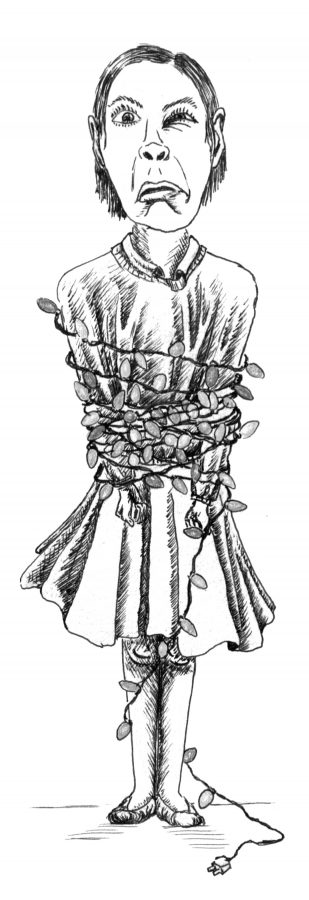“Guess what?” exclaimed a jubilant President Donald Trump at the Values Voters Summit in October. “We’re saying Merry Christmas again!” And with that, he resumed his annual crusade against the so-called “war on Christmas,” an imaginary effort by some equally imaginary secular cadre to, uh, destroy Christmas or something.
Though he routinely derides the pedantry of political correctness, Trump can be as sensitive about word choice as anyone on the left. He just has different ideas about what we should and shouldn’t be allowed to say. For example, he seems to think that merely uttering the words “radical Islamic terrorism” will obliterate ISIL from the face of the Earth and gets so deeply offended when football players protest racism during the national anthem that he says they should be fired for their activism.
He also has some ideas about the politically correct way to greet people during the holidays. It turns out “Happy Holidays” won’t cut it — nor will “Happy New Year.” If you don’t wish people a Merry Christmas, you’re shaming Christians.
He affirmed this belief at the lighting of the White House Christmas tree last week, where his Interior Secretary introduced him as the man “who brought ‘Merry Christmas!’ back to our nation’s capital.” Later the president tweeted, “it is my tremendous honor to finally wish America and the world, a very MERRY CHRISTMAS!” And a headline on the White House website informed readers that Trump had revived the “religious spirit” of the tree lighting tradition.
The whole notion that public celebrations of Christmas have declined is absurd. Trump regularly implies that president Obama shunned the holiday when nothing could be further from the truth — the 44th president attended all eight tree lightings during his administration and wished Americans a merry Christmas on dozens of different occasions.
Moreover, even if there were such a decline, what would be the problem? There’s nothing wrong with acknowledging America’s religious diversity. Not everyone celebrates Christmas, so why should everyone be greeted as if they do? It’s common courtesy not to make assumptions about strangers, but the “war on Christmas” crowd wants to politicize common courtesy — and this could be Trump’s real intention in taking up this ridiculous cause.
The president hardly seems like a religious man, but he’s proven time and time again that he knows how to leverage cultural controversy. In this case, he’s doing it by creating an environment in which people are perceived as having an agenda no matter what they say. If someone wishes you a merry Christmas, they’re a brave culture warrior fighting back against secularism. If someone wishes you happy holidays, they’re attacking your religion. Everyone has to pick a side, but what matters is that you’re on the right one, because the president says so.
Groves is a philosophy junior from Dallas. He is a senior columnist. Follow him on Twitter @samgroves.


















